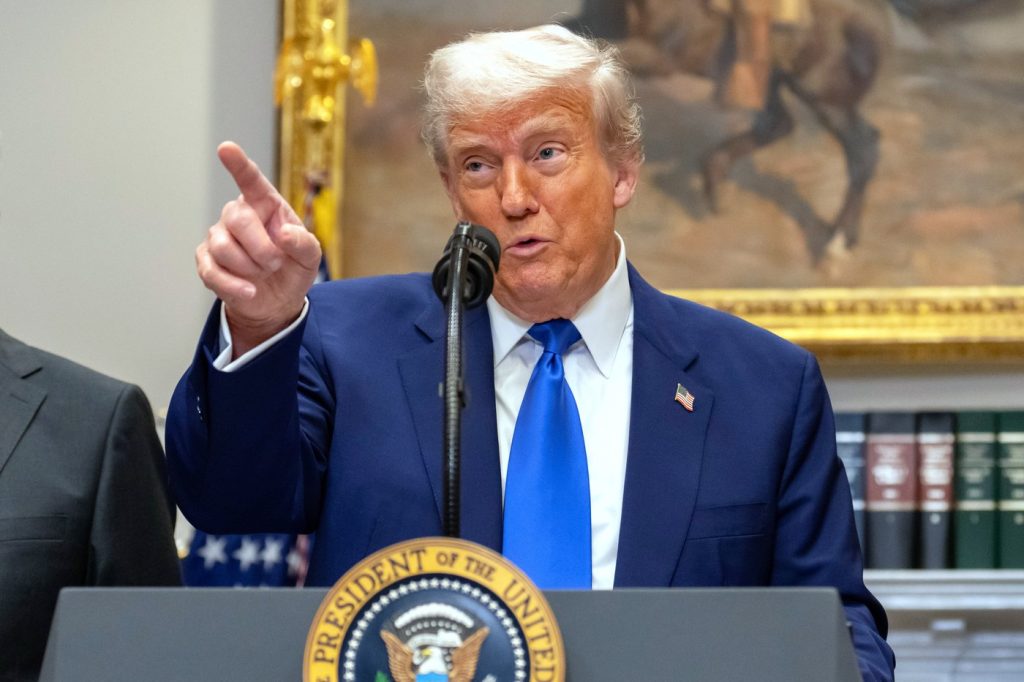In an era defined by a rapid exchange of bold ideas, President Donald Trump has made a habit of presenting surprising propositions that command headlines and strengthen his political image. This practice of making spontaneous statements with considerable implications has become a hallmark of his presidency, leading to a mixture of acceptance, pushback, or disregard over time.
One notable suggestion from Trump involves being gifted a luxury Air Force One from Qatar, valued at $400 million. The Pentagon has confirmed its acceptance of the aircraft for immediate use, pending essential modifications for security purposes. However, this proposal has raised ethical questions regarding the appropriateness of accepting lavish gifts from foreign governments, an issue highlighted by critics from various political backgrounds.
Another eyebrow-raising idea was Trump's notion of reopening the infamous Alcatraz prison, closed for over six decades. Although he has publicly discussed the potential for an "expanded and rebuilt" prison, he has not elaborated on the extensive costs and challenges associated with such a project. California's Democratic Governor Gavin Newsom has dismissed the concept, framing it as a mere distraction.
Additionally, Trump has been vocal about making Canada the "51st state," a proposal he mentioned in a post made shortly after midnight. Recently, when Canadian Prime Minister Mark Carney visited the White House, he made it clear that Canada is "not for sale." Despite Carney's reassurance that the idea is not feasible, Trump has maintained some level of interest in this proposition.
In another controversial statement, Trump has expressed an interest in annexing Greenland, which is part of Denmark. While Denmark has firmly rejected this notion, Trump and Vice President JD Vance have continued to emphasize the potential for U.S. negotiations concerning Greenland's future, despite acknowledging the island's sovereignty.
Trump has also scrutinized China's increasing influence over the Panama Canal, hinting at the possibility of U.S. action to reclaim it. While tensions have somewhat eased with a pending investment deal involving U.S. interests, the subject remains a point of discussion.
Some of Trump's initiatives appear to be losing traction. For instance, the idea of touring Fort Knox to verify the country's gold reserves fizzled out after initial buzz, and his vision of redeveloping the war-torn Gaza Strip into a luxurious resort is also losing momentum, particularly as it faces widespread skepticism from Arab nations.
Recently, Trump has taken an interest in questioning former President Joe Biden's use of an autopen for signing significant legislative documents, a point intended to raise doubts about Biden's capacity for leadership. This topic has gained traction among certain factions of the media and has even led to proposals in Congress to restrict the use of autopens for pardons.
Trump has also provocatively suggested that the U.S. could consider joining the British Commonwealth, stating on his social media platform that he found the idea appealing. However, this comment has not resurfaced in subsequent discussions, and he has faced backlash from supporters. Furthermore, he controversially labeled Ukrainian President Volodymyr Zelenskyy a "dictator," a remark he later walked back in the wake of international tensions surrounding Ukraine's sovereignty.
Lastly, Trump has proposed the introduction of "gold cards" allowing foreign nationals to buy U.S. visas, a plan that he initially suggested would roll out quickly but has yet to materialize. His ongoing discussions about the potential for running for a third term, despite constitutional limitations, further illustrate the unpredictable trajectory of Trump's political ambitions.











